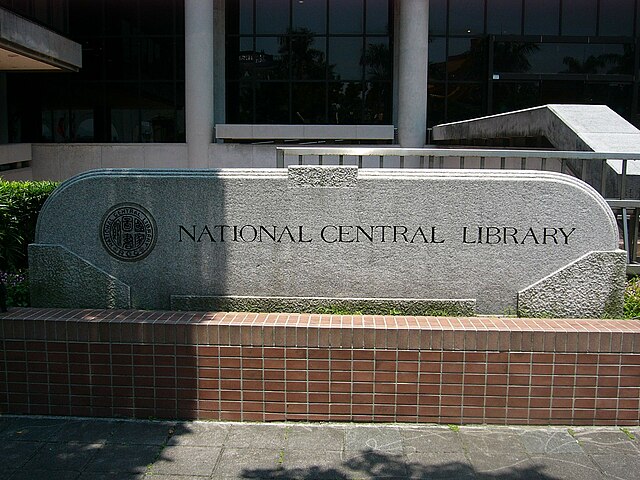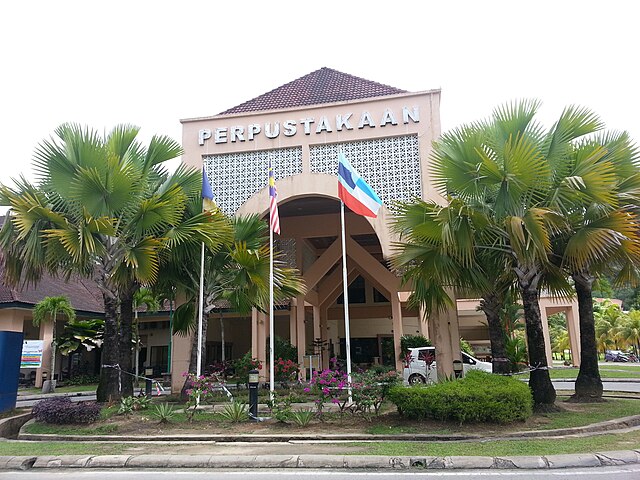On Friday November 30, a group of delegates from the Online Computer Library Center (OCLC) Asia Pacific Regional Council Meeting (APRC) 2018 visited the Pridi Banomyong Library. OCLC is an American nonprofit cooperative organization dedicated to the public purposes of furthering access to the world’s information and reducing information costs. The OCLC Asia Pacific Executive Committee is composed of respected library directors, including Dg. Rukiah Ag. Amit of the Malaysian University of Sabah (UMS), Malaysia; Shuqing Chu of Zhejiang Public Library, China; Bushra Almas Jaswal of Forman Christian College (FCC), Lahore, Pakistan; and Assistant Professor Akekarin Yolrabil, Thammasat Business School, Director of the TU Library.
Other institutions represented include the University of Hong Kong, China; Chuo University, Japan; Monash University Malaysia, Malaysia; Taylor’s International School KL, Malaysia; Forman Christian College, Pakistan; Pakistan Bureau of Statistics, Pakistan; Benguet State University, Philippines; Saint Louis University, Philippines; Singapore Management University, Singapore; National Central Library, Taiwan; Sripatum University Library, Thailand; Beijing Normal University Library; Shanghai Library, China; Northwestern Polytechnical University Library, China; Wuhan University, China; Institute of Social Sciences Information, Vietnam; National Economics University, Vietnam; Madras University Library, India; Museum of Siam Bangkok; Thai Public Broadcasting Service; Maruey Knowledge Center, Bangkok; and the Thai Library Association.
Among the themes at APRC18 were libraries as drivers of transformation; technology & innovation; from evolution to revolution; spaces & resources; analytics & data; and public purpose.
Outstanding institutions
As its website explains, the Malaysian University of Sabah Library supports the University’s Quality Management System MS ISO 9001:2008 Provision of Education Service for Undergraduate Programmes for UMS. Last December, the TU Library likewise received ISO 9001:2015 certification from SGS (Thailand) Limited with guidelines for quality management in every service-related process, following ISO 9001:2015 regulations.
Among UMS Library quality objectives:
80% of the reference materials listed in the Undergraduate Degree Course Structure are available in the Library.
85% of the materials received by the Library are catalogued.
The UMS Special Collections division preserves materials by or about past and present prime ministers of Malaysia; proceedings, seminar papers, government publications, and books about Asian countries, as well as works by and about Nobel Prizewinners in literature, physics, chemistry, economics, medicine, and peace.
The Zhejiang University Libraries are located in Hangzhou, Zhejiang, China. The Library of General Knowledge was founded in 1897. Its eight branches store just under 7 million books. It ranks among the two largest university libraries in Mainland China, along with Peking University Library in Beijing. Its branches comprise the Library of Science and Technology; Ni Tie-Cheng Library; S.W. Yuan Library of Engineering; Library of Arts and Sciences; Library of Agriculture; Library of Medicine; Library of General Knowledge; Guanghua Law School – Law Library. In 2005, a partnership between Zhejiang University Libraries and the University of Pittsburgh Library System was established.
As its website notes, Zhejiang University Library (ZUL)
has advanced service management system that books from the all the branch libraries can be borrowed, returned and placed holds with each other. The library is actively involved in the freshmen education, integrating various forms of guidance activities into the school education system; actively uses modern technology to provide novelty search, citations, document delivery and other services; also actively strengthens the protection and reveal of ancient work, and continues to promote the construction of special collections. ZUL actively involves in resource sharing and digitalized construction of Chinese higher education. Zhejiang University conducts the project University Digital Library International Cooperation Program (China Academic Digital Associative Library, CADAL) cooperating with worldwide universities and research institutions. At present, the phase one is completed and phase two is in progress. ZUL also acts as the provincial center of Zhejiang University Digital Library (ZADL) and the leading library of technical groups, resource groups, service groups, conducting the project management, the construction work and other tasks. It sets a good example and contributes to construct provincial digital libraries. CADAL and ZADL project will further promote the development of digital library technology, giving the resources and technology foundation for sustainable development of the digital library construction and service work.
Among its special collections are books dating back to the Song dynasty, an era of Chinese history that began in 960 and continued until 1279. There are also books from the Yuan dynasty (1271–1368) and Ming dynasty (1368–1644). Among its treasures are manuscripts by He Shaoji (1799-1873), a celebrated scholar, calligrapher, and poet of the Qing Dynasty. ZUL also owns manuscripts by Sun Yirang (1848–1908) was a Qing dynasty philologist, among other renowned authors.

The Ewing Memorial Library, Forman Christian College (FCC), Lahore, Pakistan is considered one of the best college libraries in Lahore. Built in 1943, it aspires to the FCC motto By love, serve one another. This corresponds with the unofficial motto of Thammasat University, as stated by one alumnus: I love Thammasat because Thammasat teaches me to love people.
The Ewing Memorial Library website explains that is is currently rated among the best automated libraries in Pakistan. Its technology includes VTLS VIRTUA Integrated Library Automation System, 3M Security Control System , automated shelving system using RFID-tagged collection and a Digital Library Assistant (DLA), the latest feature-rich CCTV Network with AXIS brand IP Cameras and Milestone Xprotect Enterprise software on a powerful Network Video Recorder Server with seven days recording capacity.
Madras University Library was established in 1907. The library building, designed in Indo-British style, opened in 1936. Its pointed granite arches and octagonal based domes echo Islamic architecture in India. The University of Madras motto in Latin is Doctrina Vim Promovet Insitam or Learning Promotes Natural Talent. Founded in 1857, the University of Madras educated many distinguished researchers, including two Nobel Prizewinners in Physics, C.V. Raman and Subrahmanyan Chandrasekhar, and the legendary mathematician Srinivasa Ramanujan.
The Indian chess Grandmaster Viswanathan Anand and the tennis players Vijay Amritraj and Ramanathan Krishnan are also University of Madras alumni.
World ranking collections
The Institute of Social Sciences Information (ISSI) Library in Hanoi, Vietnam, is affiliated with Institute of Social Sciences Information. It holds some 500,000 books and 2,000 newspapers. There are also rare old books from Japan and China. Its collection of ancient Chinese texts is ranked fourth in the world, after the Beijing National Library, Tokyo University Library, and Taiwanese National Library. Some of its books date back to the 1700s. Others are so rare that they cannot be found in complete versions even in China, where they were printed. A collection of traditional literature comprises over 160 volumes of folklore collected from about 9,000 villages across Vietnam.

(All images courtesy of Wikimedia Commons)


